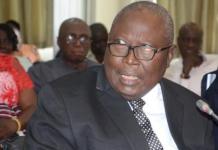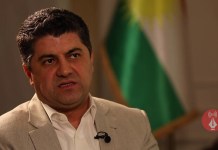“The coronavirus pandemic has really affected me financially. I have emptied my savings account at the moment and I am really struggling to survive. My school paid me full salary for the month of March, but told me I wouldn’t be paid anything from April since there is no money coming in,” a private school teacher who has four dependents and wants to only be known as Gabriel told the B&FT.
Many private school teachers can identify with the situation of Gabriel narrated above. Some have been told point-blank not to expect anything called money from their employers, as the closure of schools in March to contain the coronavirus pandemic has stopped all incoming revenues – namely school fees, extra classes fee, feeding fee, among others.
For most of these teachers, even though they appreciate the restriction from government as well-intentioned, the hardship it has brought on their lives and those of their dependents is unbearable and has put them in desperate situations. Some, this Paper is reliably informed, have even sent their families to their villages; as the standard and cost of living there is far lower than the city.
For others, the situation has disrupted their planned projects for the year. For example, Jonathan, also a private school teacher in Accra, says he was saving toward marriage by end of the year.
But with the disruption to his income, he has no option other than to dip his hands into his savings – essentially, meaning the marriage plans must be put on hold till further notice.
What makes the situation more dispiriting for these private school teachers is that most of them survive on salaries of less than GH¢1,000 (about US$180) monthly. Gabriel, for example, says he takes home an income of less than GH¢700 monthly. And it is with this meagre salary that his mother, two nephews and one niece depend – such a nerve-racking ordeal for a young man in his early 30s.
To buffer their scanty salary, most private school teachers also depend on extra class fees to survive. Without this, Jonathan says, the teachers can’t stay on the job even with their full salaries. In the school where he teaches, in a very good week he takes home GH¢250 as extra income he makes from extra classes organised by the school.
So, the issue clearly goes beyond salaries that have either ceased coming or been cut by 50 percent. It tresspasses into other mini benefits that teachers get to cushion their small income.
For Gabriel and Jonathan, the pandemic and its impact on their livelihoods have got them thinking lately as to whether their future lies with a teaching job.
Like many of their colleagues, they would quickly, without thinking twice, jump at any opportunity in other sectors that may come their way after this whole pandemic episode is over.
The hardship faced by the schools has pushed its body, the Conference of Heads of Private Schools (CHOPSS), to call on government to include them among businesses that must be given stimulus packages to revive their operations; or else it will be difficult for them to rise again even after the ban is lifted.
Should schools re-open?
Though the two teachers interviewed are hard-hit by the closure of schools, lifting the restrictions now at a time when the number of confirmed cased has surpassed 6,400 would be very dangerous; especially, as it would be difficult to observe some of the safety protocols such as social distancing. “The lives of students and teachers are at stake here. I don’t think the time is due for us to go back to school. The rate of infection is still high,” says Gabriel.
“We all know how dangerous it would be for this nation should schools reopen. The disease would spread like wildfire since no school in Ghana can safely practice social distancing. We are not sure of how to handle the situation,” Jonathan said. For private school teachers, they can only hope a vaccine can be found soon so life can return to normal; or else they will be plunged into abject poverty.












